Translators and fixers who mess up your expedition, it’s not something explorers and expedition leaders like to remind themselves of once the trip is over. Yet, it happens. And it sucks. I want to share my experiences, not to blame or shame, but to ask for input and suggestions. How would you cope in a similar situation?
The Altai expedition
Last summer we, Arita Baaijens and Wayne Poulsen, circumnavigated the AltaiGoldenMountains in the heart of Asia. The journey on horseback took us from Kazakhstan, to China, Mongolia and Russia. We covered 1500 km in 3,5 months. Our aim was to intimately engage with the land and its people, and ask stakeholders to share their vision for the future of the Altai, an important biodiversity hotspot.
The expedition took years of preparation and planning. We would travel in sensitive border zone areas in a geopolitical hotspot and so we needed contacts and obtain necessary documents. We managed all that done, but were sure to run into trouble of some kind on the way. So we spent a good deal of time searching for the right fixer/translator in each of the four countries. And we thought we had found them.
We completed the circumnavigation and the journey was a fantastic experience. The landscape, wild life, nomadic people…. just incredible. So after coming back I soon forgot about the lows of the journey. But now that I am digitalizing my notes all the memories come back. Many happy moments but some were pretty grim. Am not referring to being bone tired, or drenched, or hungry. I am talking about misunderstandings, bad performances, deceit and outright lies from fixers we had hired to help us achieve our mission. The hurt is still fresh and of course this is only my version of the story, so keep that in mind when you read about what happened.
Troublemaker I
The first troublemaker was an experienced expedition guide / outfitter. His English was somewhat limited, but he was the only one in that part of the world who could provide us with the services we needed. We had communicated with him for many months about travel dates, maps, routes, horses, permits, fees, the expeditions mission and goals. We repeated these data many times over the phone and by email. We also offered to pay an advance via Western Union to show our Man we were serious and sincere.
When we met we got along very well. Our Man was fit, adventurous, pro-active and he loved the outdoors. But gradually we noticed that some things were difficult for our Man. For example, he did not like to answer questions and always rode far behind so that our questions were lost in the wind. If he was within hearing distance, his standard answer was: Hmpf. Or: I don’t know.
As we did not encounter many nomads or herders on this leg of the journey, we could live with his limited social skills and language skills. Besides, he was very good in other things, like cutting wood, making a fire, keeping track of our food situation. What worried us though was his inability to deal with authorities. And he was also unable to handle differences of opinion, which often meant he would not translate conversations when things got a bit tough. For example, when people joined our expedition without asking, but expected to be fed and paid. Or when the horsemen charged outrageous fees. Our Man made the situation worse by disappearing from the scene, or taking sides with the other party. When that happens a few times it is not that bad. But in our case it happened ALL the time because for reasons our Man would not explain we changed horses and men almost every 3 days. Which cost a fortune, because we paid for the days the men and horses worked for us and also for the days it took to get back.
After about a week I noticed a change in myself. I was holding my breath every time I or Wayne wanted something to be done, like choosing another camping site, or stop to film, or check a place for rock engravings, or leave earlier or later, or whatever. I know this does not sound like a very serious problem, but mind you, this was OUR expedition but that didn’t sink in with our Man (and for that matter the horsemen he hired). My expedition partner does not share my feelings about not being in charge. But to me, an experienced expedition leader who made many desert crossings, the difference between my former expeditions and this was crystal clear. And it was unbearable. No way was I going to be treated like a guest on my own expedition. What was the fixer thinking? That I hired him so he could tell me what to do? That I was a doormat? We tried to talk about it around the fire at night. We tried humour. We sweet talked. We got angry. Frustrated. To no avail. Finally we reached a point that we had to part ways. Luckily this was almost at the end of our trip in his country.
Troublemaker II
After a lucky and long break with an intelligent, good humoured translator who provided us with the best possible company and valuable insights about his culture, disaster struck again. This time the troublemaker was a woman. No gender issues when it comes to bad performance.
The Girl had studied English and came recommended through a photographer who had worked with her. Under less stressful circumstances, but nonetheless.
The first morning she did not get out of bed before 10 am, and only after being called. The rest of the trip we had to wake her up most of the time. Sometimes she would appear in pyjama’s at breakfast. Whatever strategy we tried, we never managed to leave camp before 10 am. And we never set off before she had applied powder and lipstick. Fine. Horses love to see a good looking woman.
What was not okay was the fact that she hardly ever translated conversations she had with our horseman and with nomads we met on the way. Of course I made her translate my questions, she would then talk and talk, clearly enjoying the conversation, and in the end give me a very short version of what was being said. I am not stupid, I am not a bitch, so trust me, I tried to make her perform better and I also explained what researchers need: A literal translation, not an impression.
‘This woman is not saying anything interesting,’ she would say whenever I asked to translate a dialogue. Or: ‘We chat about unimportant things.’ Sometimes she would just smile and give me that look. Stop bothering me, it said. Stuff the Girl labelled ‘unimportant’ was crucial information for me: nomads talking about their daily life, about rare plants, about legends and rumours. Or our horseman telling stories about geography, wild life, history of places we travelled through. She would talk with him for hours on end, not a word was translated. Not even when asked.
For me, as a writer, researcher and a human being, this was extremely frustrating. I had hired the translator to help me understand a nomadic culture. And if this girl didn’t deliver, I could not do my job. Why didn’t that register? I asked her, of course, but didn’t get an answer. Just a giggle and that look again.
So here I was, a 57 year old explorer who had crossed deserts and had successfully dealt with bandits. And now I was going to be defeated by a 20+ year old irresponsible girl? No way. But what could I do? Beat some sense into her? Throw her into the river?
The misery was not restricted to her failing as a translator. I wish it was. Thinking about all the rest that happened makes me so upset that I leave it up to your imagination. Let me just say that this girl messed up our expedition in her part of the world Big Time! Until the very last day. Dear Lord above, really, I did not commit enough sins to justify such punishment…
In the end all I could do was accept the situation, to be totally Zen, otherwise I would have gone mad. Only when she met our next translator, top ranking, the girl realized how utterly she had failed us, both as translator and fixer. Tears flowed and she promised to do better next time. Sure.
Solutions please
Don’t get me wrong. I don’t expect the impossible when it comes to translators, and disappointments come with the job. But it was never as bad as this time, and I just can’t get over it that one person can cause such serious damage. Remember we were in the middle of nowhere, impossible to exchange translators there and then. We also had to meet deadlines. If we didn’t cross the next border at a given date we would not be able to enter that country at all. Of course it would have helped had we spoken Russian, Kazakh, Han Chinese and Mongolian. We do speak quite a few languages between us, but the brain has its limits.
Any suggestions?
Arita Baaijens is a legendary desert explorer and biologist, with a foot in scientific research, photography, journalism and as a writer. Now also a film maker. Visit her site at http://www.aritabaaijens.nl/index_en.php
*Photo Courtesy of Wayne Poulsen and Arita Baaijens
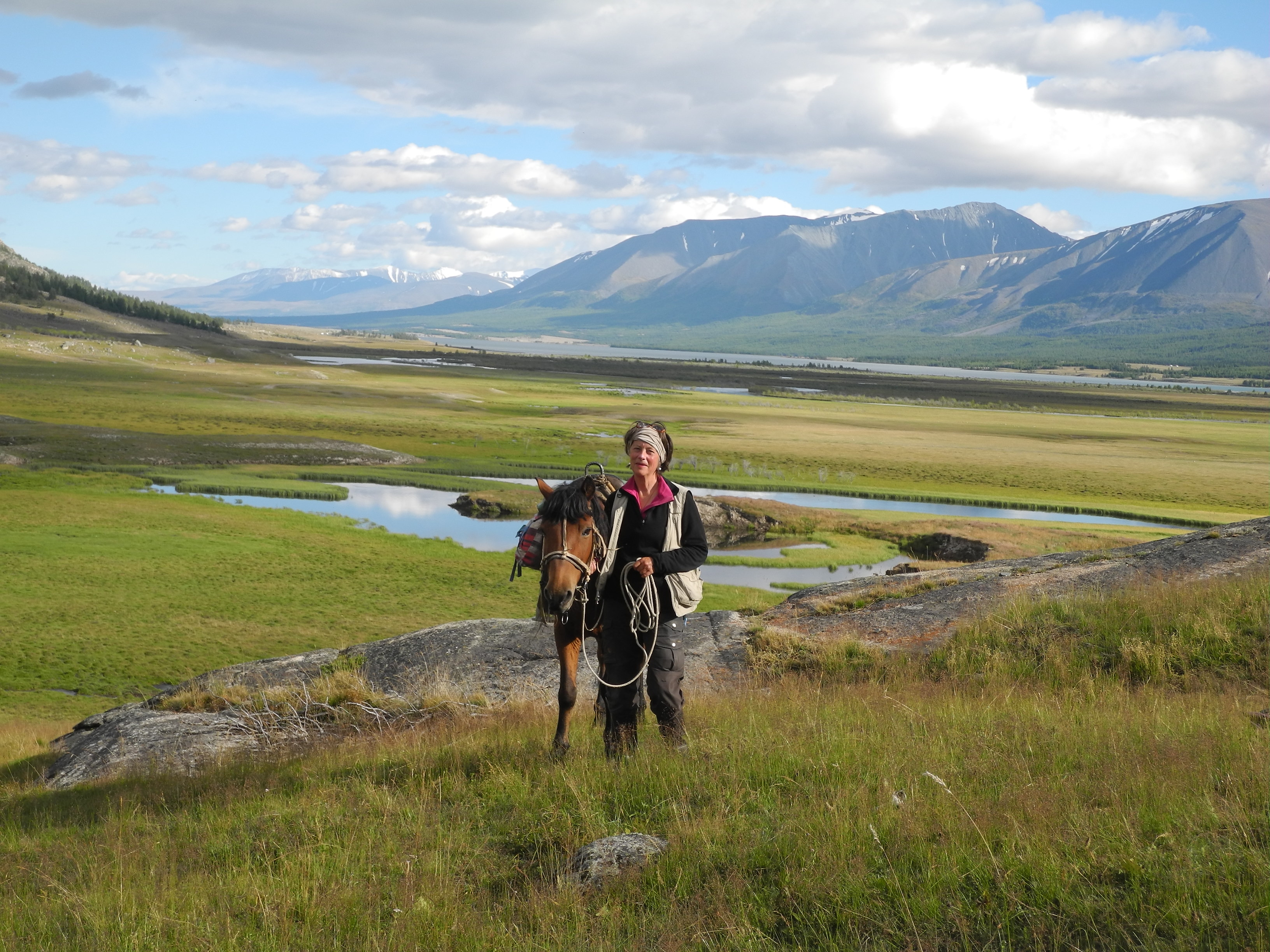
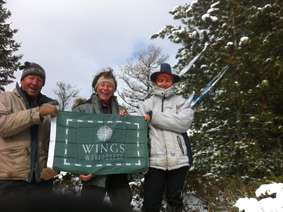
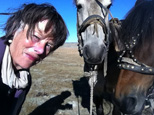
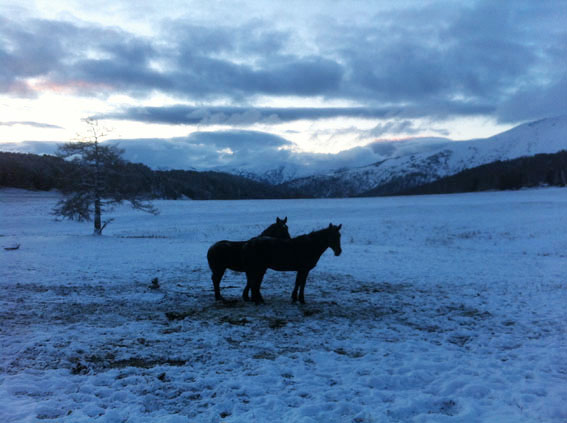


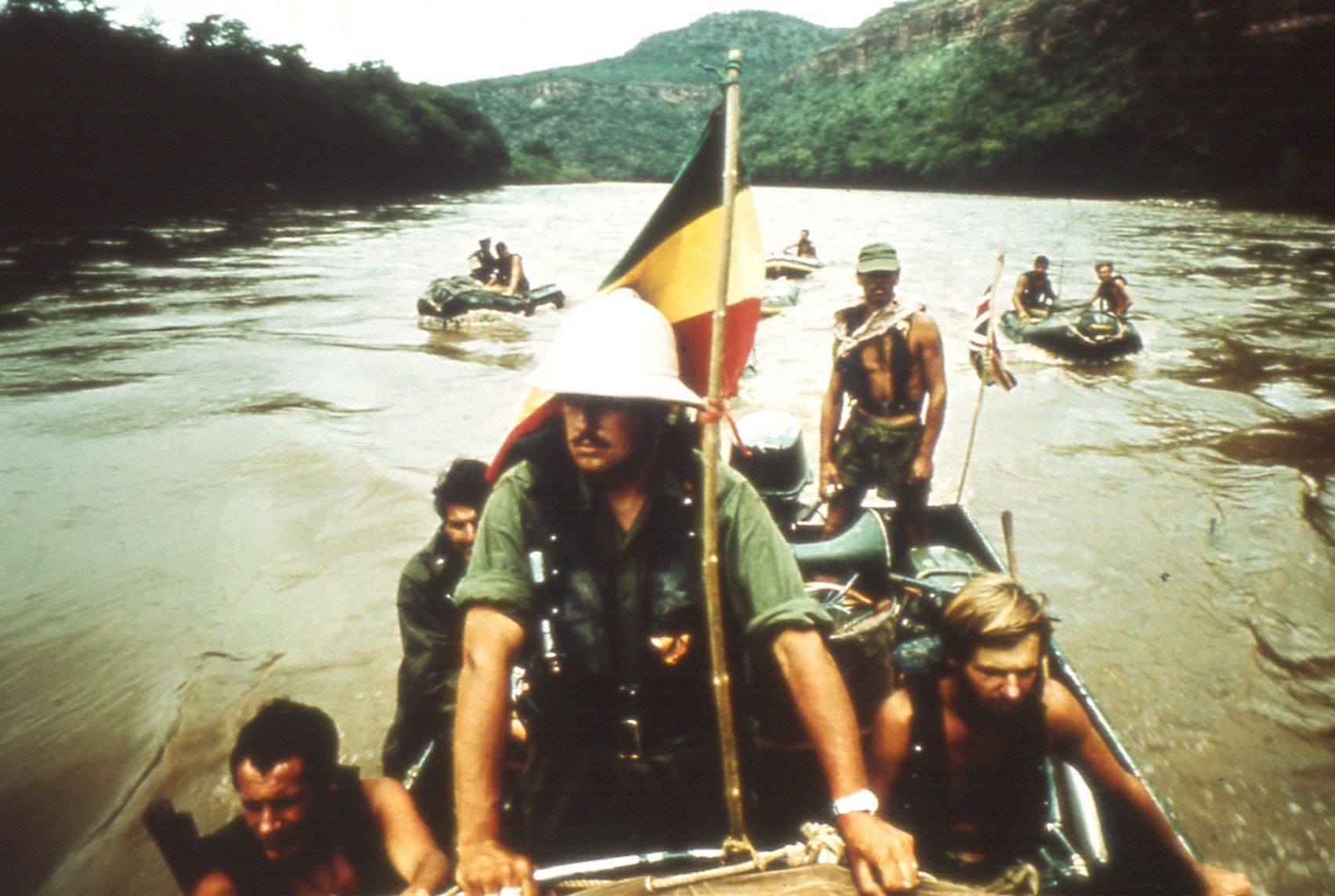
So it’s early Friday morning and I am reading an interesting article on Mikael Strandberg blog regarding ‘the challenge of translators and fixers’ while on expedition when my phone rings. I look at the clock, its 6am in Austria so I know it’s an incoming call from either Uganda or South Sudan where it’s 8am. I scramble to answer before they hang up for typically when a call comes in from Africa it rings twice before the caller hangs up so I have to call back and in turn pay for the phone charge. Looking at the number’s country code of 211 I know for sure it’s South Sudan calling. I answer and have a short two minute conversation. The person says they are in Juba, the situation is calm and that they are on the way to Uganda and will call me again on Sunday. The voice of the person calling was unfamiliar to me. In fact it was not until the call had ended that I was able to determine without doubt where in South Sudan the call had originated. It was a local fixer, one on a long list of Juba based fixers. Since the crisis began December 15th I have developed numerous planned scenarios. The situation is fluid, changing hourly. Some say flights are still going into Juba, some say not. Reports say Juba is returning to normal but what is normal when bodies still lie uncollected in the streets. Some say towns in the north and the east have fallen to rebels loyal to the dismissed vice president but one man’s rebel is another’s freedom fighter. When a fixer calls and tells you the situation is calm but “I’m heading for safety in Uganda”, you have to ask yourself, ‘just how safe is safe?’ In the end, even the words from the fixer might be lost in translation…
Julian, my response comes a bit late but thanks for your input. Translators and fixers do have a life of their own and in case of working in zones of conflict – that is of course a total different reality than the situation described in my blog. It is even more important to know translators and fixers well before working with them, lives are at steak and not only the life of the journalist… Be well. Arita
isn’t it so that a translator can turn out to be a good/acceptable fixer but that a good fixer doesn’t necessarily have to be a good translator. In other words, is it realistic to expect that the combination will always turn out to be a successful one? For translations you could resort to recordings but the fixer has to perform there and then.
Surely you had some great examples where it worked out positively, but a fixer is ultimately that: s/he makes the best out of a situation s/he is in and will usually also directly be impacted by the outcome.
I know it doesn’t address the question of how to make a better selection, upfront, or how to correct a non-performing or an ill-co-operating one, but perhaps by looking at the two disciplines individually it improves the selection process outcome?
You are right about a fixer / translator combination in one person. But that was not so much the problem. Besides, I could never pay for both a fixer and a translator to come. It just astonished me how much damage can be done by a person who does not function, and while on the road, there’s not much I could do about it. I tried, but no strategy seemed to work. Tnx for your thoughts on the topic!
I am joining this discussion rather late as a serendipitous result of being on Vitaly Shuptar’s New Year greetings list. I am not an explorer except in the sense of having implemented a humanitarian programme in a territory and cultural environment of which the Western world knew (1992) virtually nothing.
For me the most important was to find a chief fixer, who could then be relied upon to find reliable sub-fixers everywhere we needed to be (Moscow, Alma Ata, Tashkent, Bishkek, Osh, Dushanbe, Khorog, Murghab, Rangkul and places between).
I therefore fully agree that the two functions should, ideally, be separated. Yuri – see http://www.pamirs.org/Yuri-Khubonshoyev-farewell.pdf – did not speak a word of English, nor did many of the intermediate fixers – but they all did a fantastic job of getting visas, meeting at airports, arranging strategic discussions, bypassing red tape, seeing off the mafia – including the traffic police and border guards – making travel arrangements, organising overnight stays in totally unexpected locations (a building site at Bishkek airport, a yurt at 4000m, the State guest house in Samarkand etc.)
For translators we took students – highly motivated, their enthusiasm making up for any language weaknesses, although it helped to know enough Russian to be able to point out any short cuts they might have taken. Lipstick, overdressing, anxiety about the daily rate and a failure to look you in the eye were enough to veto a potential candidate. The best (actually most) have gone on to distinguished careers – for them it remains an unforgettable and sometimes transformational and humbling experience (they had never seen real poverty in their own country).
With very best regards to Arita and thanks to Mikael.
Robert Middleton
Dear Robert,
This article by Arita was published before I actually knew much about Kazakhstan. Now, of course, I love it! And as you, i have only met the best of the best fixers and organizers. It couldn´t be better. And students as you say, superb. I have absolutely nothing negative to say about Kazakhstan. On the contrary, for me it is the most exciting country on earth!
Nevertheless, this topic is really an important one for anyone doing any type of adventurous travel or project off the road. So keep these comments coming!
Your Pamir project looks very interesting. Maybe an article at http://www.mikaelstrandberg.com/guest-writers/
Write to me at mikael@mikaelstrandberg.com
M